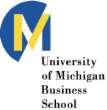
qualityg says... Guess which state is slotted for the biggest fall? The results of this study are very troubling. Please see the scenario for Michigan below in Red.
Press Release
Contact: Teri Moblo (517) 203-2940 (email) tmoblo@mea.org orAlex Molnar (480) 965-1886 (email) epsl@asu.edu
TEMPE, Ariz. (Wednesday, September 14, 2005) - Fewer schools in the GreatLakes region were labeled “failing” this year. That will change, however, if the federal No Child left Behind Act of 2001 (NCLB) continues to be the driving force behind the measurement of school and student success. Mostschools in the region will labeled “failing” by 2014, according to “TheImpact of the Adequate Yearly Progress Requirement of the Federal No ChildLeft Behind Act on the Great Lakes Region,” a study released by the GreatLakes Center for Educational Research and the Education Policy StudiesLaboratory at Arizona State University.

The study is the first multi-state research to use actual state data to predict how schools will fair under No Child Left Behind current AdequateYearly Progress (AYP) requirements. The authors, Edward C. Wiley,University of Colorado-Boulder; William J. Mathis, University of Vermont;and David R. Garcia, Arizona State University, assessed how much gainschools made in 2003-2004 and used these data along with each state’s established growth expectations to predict how many schools will meet the federal requirement of 100 percent proficiency on state high-stakes tests by 2014.
Regardless of the growth expectations set by the Great Lakes states, theresearch findings are clear: Approximately 95 percent of the schools in the Great Lakes region will be labeled “failing” by 2014. The state-by-statepredictions are:
Indiana: Under the best case scenario, it is projected that 54 percent of schools will fail by 2014. Under a more realistic scenario, 80 to 85percent of schools will fail.
Wisconsin: Under the best case scenario in, it is projected that over half of the schools will fail by 2014. Under a more realistic scenario, 84 percent of schools will fail.
Ohio: Under the best case scenario, it is projected that almost half of the schools will fail by 2014. Under a more realistic scenario, close to 80percent of schools will fail.
Minnesota: It is projected that 85 percent of schools will fail by 2014.
Michigan: Under the best case scenario, it is projected that half of the schools will fail by 2014. Under a more realistic scenario, almost everyschool will fail.
Illinois: Under the most optimistic scenario, it is projected that over 65percent of schools will fail by 2014. Under a more realistic scenario, thatnumber is closer to 85 percent.
“It’s fail now or fail later,” said Teri Moblo, Director of the Great LakesCenter for Education Research and Practice. “Under the current system, schools are destined to be labeled as failing and there is no way around it.The question isn’t will schools fail, it’s when will they fail. Withoutincreased flexibility in the AYP requirements and a focus on the underlyingreasons why students do not perform well on such tests, we will continue toinvest huge amounts of time and money in a system where failure isguaranteed.”
The authors point out that AYP measures the success or failure of schoolsand students solely on high stakes test scores in basic academic areas.They point out that the special needs and learning styles of students arenot taken into account; that the impact of poverty and diversity on aschool’s ability to achieve AYP is not addressed; that testing and sanctionsfor not making AYP do not address the underlying causes of poor testperformance; and that in order to meet yearly AYP goals, states are forcedto direct their increasingly limited resources toward the administering andscoring of standardized tests, estimated to cost between $1.9 billion and$5.3 billion for 2002-08.
The study goes on to recommend ways to increase student learning and improve AYP results:
* Develop programs that include families, community, and health providers,and that strengthen childcare, early education, summer and after-schoolactivities, and technical education, among other vital and essentialservices.
* Dedicate adequate funding for remediation and social infrastructure, toovercome disparities and meet student educational needs.
* Create realistic, comprehensive school evaluation systems that involve avariety of evaluation methods.
* Set realistic standards linked to external expectations and grounded inresearch.
* Use aggressive confidence intervals and subgroup sizes to measure rates ofgrowth.
* Modify the standards and growth expectations for special education,non-English speaking, and migratory students.









